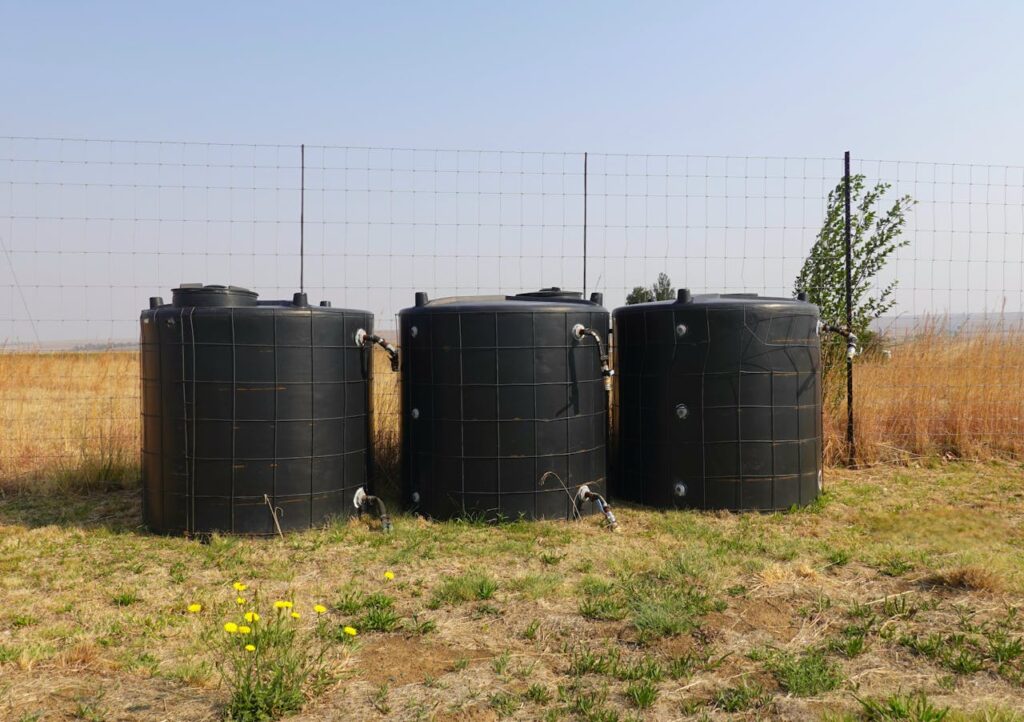
Water scarcity is a growing concern across Europe, with southern countries such as Spain, Italy, and Greece experiencing increasingly prolonged dry periods, and decreasing aquifer levels due to climate change. These challenges highlight the urgency of adopting sustainable water management practices, including rainwater harvesting, wastewater reuse and efficient irrigation systems.
While Luxembourg does not suffer from severe water shortages, year after year, it does experience irregular rainfalls with heavier intensity during rainy season resulting in more frequent flood incidents. Luxembourg also faces challenges regarding water quality and pollution control. It does not fully meet EU Water Framework Directive standards, largely due to agricultural runoff and urban pollution. The significant rising in water temperature of the Moselle river as the only navigable river of the country that is also heavily used by Cattenom nuclear power plant to cool reactors in France, raises serious concerns for the country and its ecosystem.
Furthermore, the country relies heavily on groundwater. In fact, groundwater provides 57 per cent of the 47 million m³ of drinking water used annually in Luxembourg. Under Luxembourg Water Act, there must be a balance between depletion and renewal of underground water sources so that they will be in good condition by no later than 2015.
Now, lower levels of rainfall may incline many farmers to exploit the groundwater resources even more. Without stricter policies to meet the EU water standards, rising temperatures will only result in further decline in surface water quality in Luxembourg, which in turn may encourage more reliance on groundwater sources.
Overexploiting groundwater to meet short-term needs can have devastating consequences, as demonstrated by Iran’s experience. Decades of excessive groundwater pumping led to:
- Aquifer depletion: Drastic drops in groundwater levels rendered wells unusable.
- Land subsidence: Sinking land damaged infrastructure and reduced agricultural productivity.
- Water scarcity: Communities were left without reliable water sources.
By learning from such cases, Luxembourg should opt for a balanced approach by integrating sustainable groundwater use with alternative water sources like rainwater harvesting.
What is a rainwater catchment system and how effective is it?
A rainwater catchment system, also known as a rainwater harvesting system, collects and stores rainwater from surfaces like rooftops for later use. This harvested water can serve various purposes, including irrigation, flushing toilets, and, with appropriate treatment, even drinking. Rainwater harvesting offers several benefits such as water conservation, flood mitigation, environmental protection and even cost savings for households.
The effectiveness of these systems depends on factors like local rainfall patterns, system design, and intended use. Proper maintenance is crucial to ensure water quality and system longevity.
The Europe rainwater harvesting market is expected to grow at a CAGR of 3.9% between 2024 and 2032, reaching a value of USD 308.09 million by 2032. The adoption of rainwater harvesting varies across Europe:
- Households: In countries like Germany and the UK, rainwater harvesting systems are relatively common in residential areas, supported by government incentives and public awareness campaigns.
- Agriculture: In Southern European countries such as Spain and Italy, rainwater harvesting is increasingly utilized in agriculture to combat water scarcity and ensure crop irrigation.
Comprehensive Europe-wide statistics on rainwater harvesting adoption are limited. However, studies indicate that in Germany is leading the market with tens of thousands of tanks installed each year, followed by other countries such as France, and the UK.
Government of Luxembourg is taking some pre-emptive actions to move towards sustainable water management. For instance, it provides financial aid to households for the installation of rainwater catchment system with an aim to promote the sustainable management of water resources and pre-emptively tackle the future water scarcity.
Rainwater catchment systems are effective tools for water conservation and management. While their adoption in Europe varies, increasing awareness of water scarcity during warm season, and more frequent floods during rainy season is driving more households and agricultural operations to consider and implement these systems. Enhanced data collection and supportive policies could further promote their widespread use.
We collect data and analyse trends on the use of water catchment systems in Luxembourg and the EU. Contact us today to discuss your sustainable water management needs.